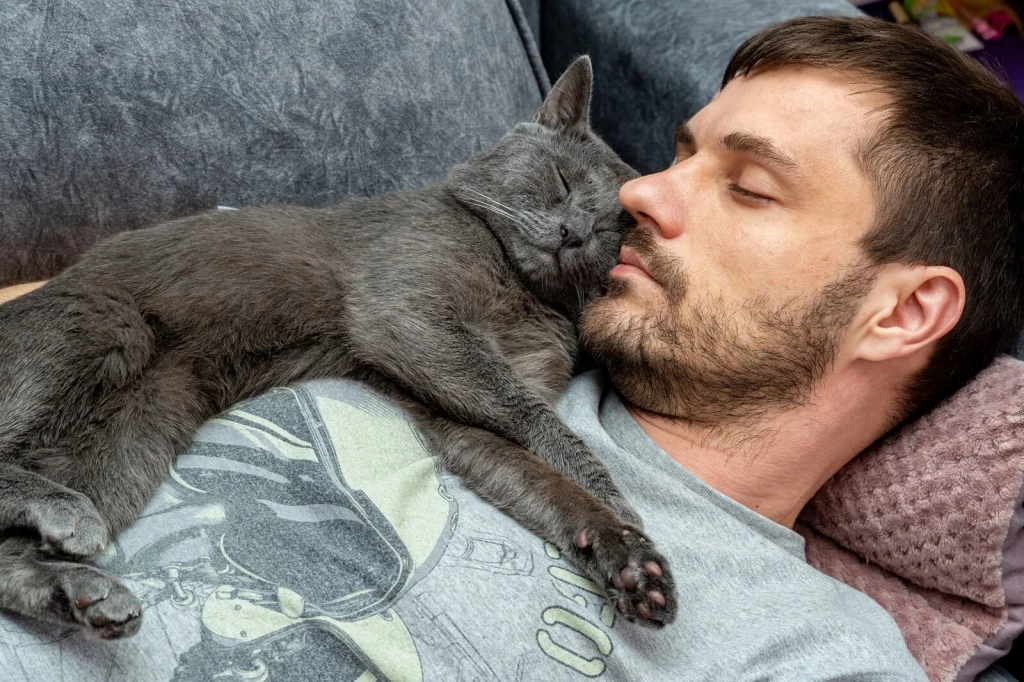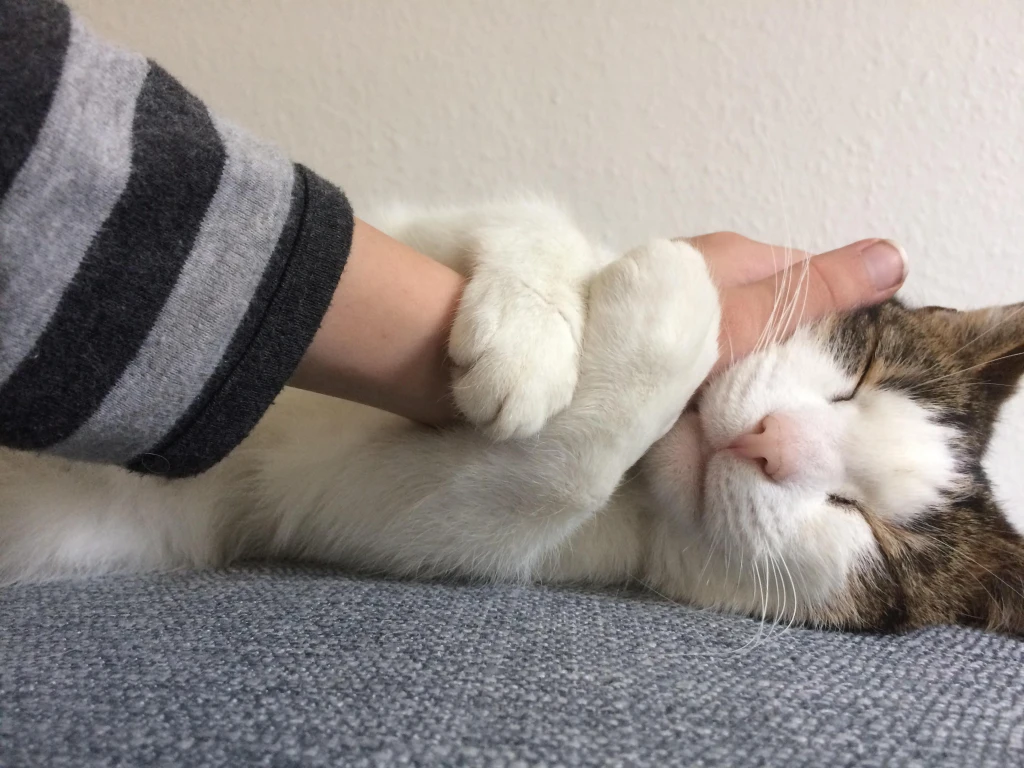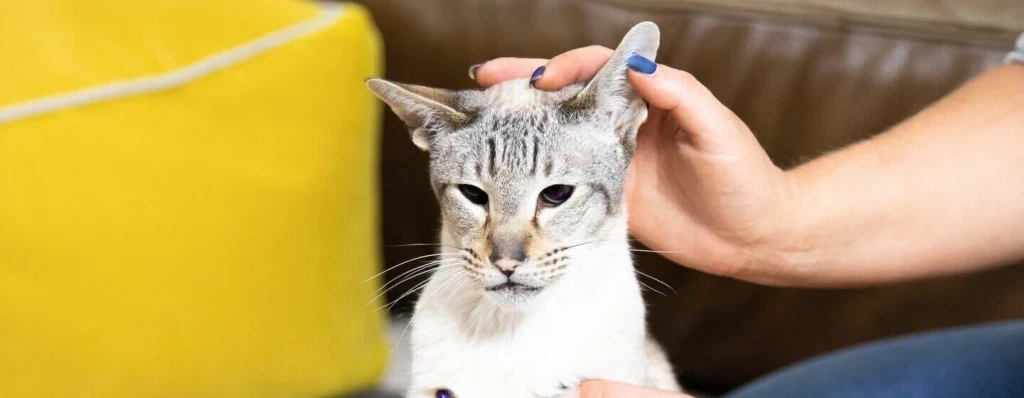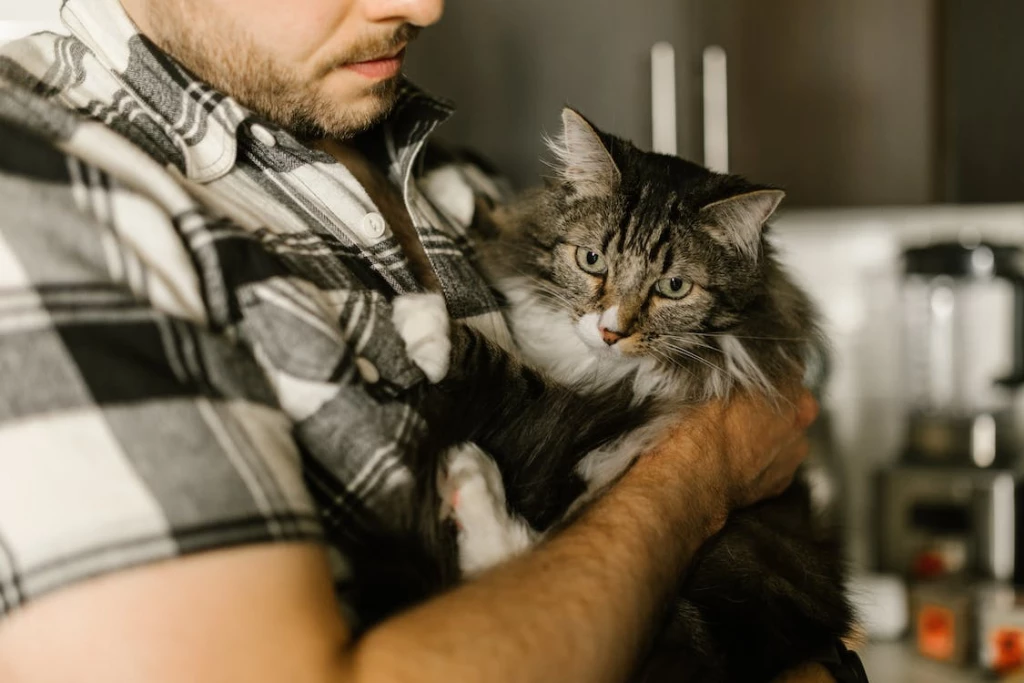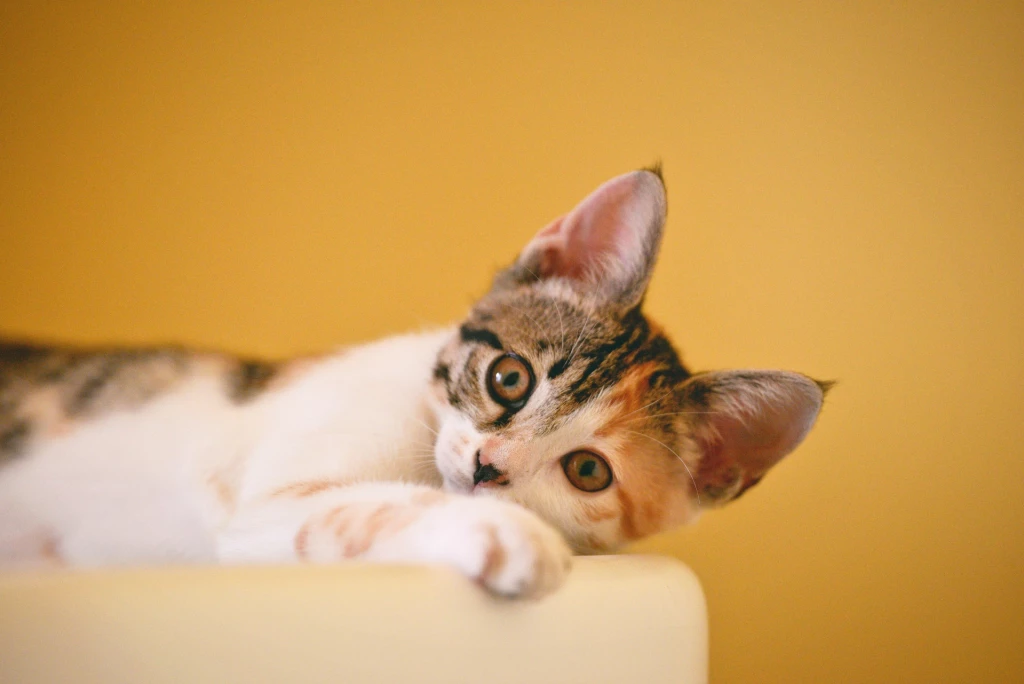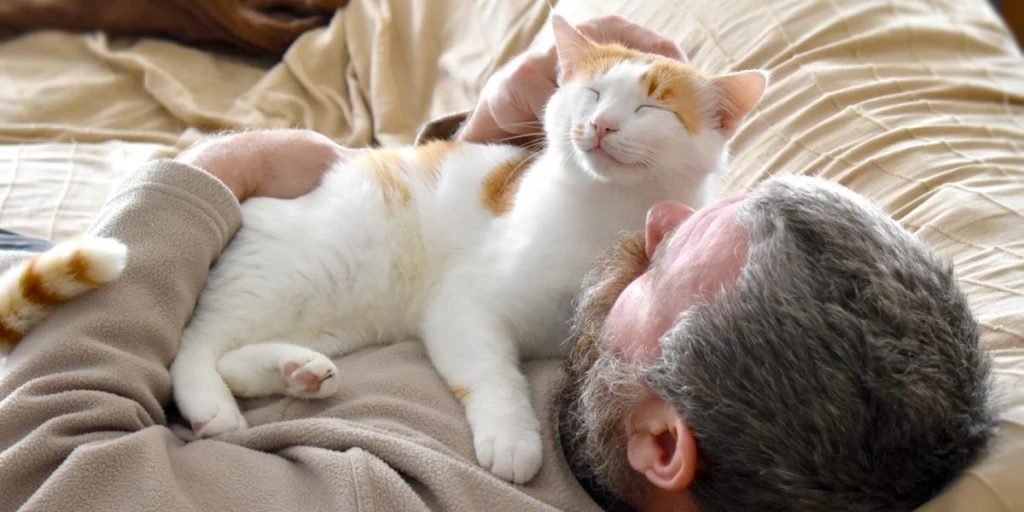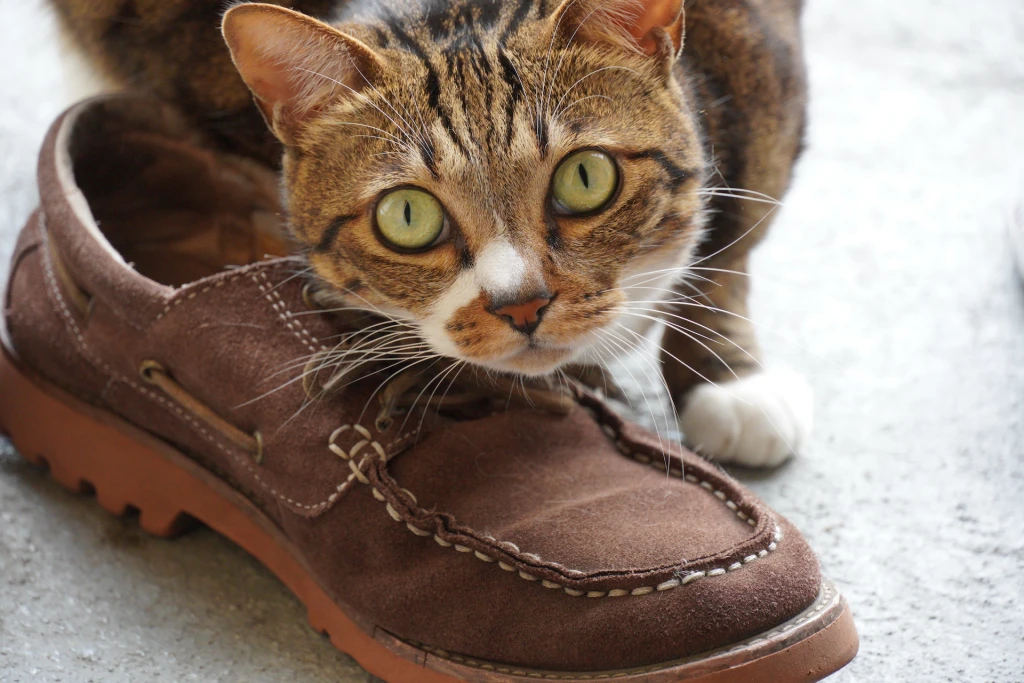Do you ever wake up to find your cat sleeping on your chest? If so, you might be wondering why your feline friend chooses this spot to snooze. Is it a sign of affection, dominance, or something else? In this blog post, we will explore 10 possible reasons why your cat sleeps on your chest and what it means for your relationship. We will also give you some tips on how to deal with this behavior if it becomes a problem.
Cats are mysterious and fascinating creatures, and their sleeping habits are no exception. They can sleep anywhere from 12 to 16 hours a day, and they often choose unusual or unexpected places to nap. Some cats may prefer to sleep on high places, such as shelves or cabinets, while others may like to sleep in cozy places, such as boxes or baskets. And some cats may like to sleep on their owners, especially on their chests.
But why do cats sleep on their owners’ chests? What are they trying to tell us? And how should we react to this behavior? These are some of the questions that we will try to answer in this blog post. Read on to find out why your cat sleeps on your chest and how to make her more comfortable.
10 Reasons Why Your Cat Sleeps On Your Chest
1. Your Cat Loves You
The most common reason for your cat sleeping on your chest is because they love you. They may have started out with smaller signs of affection, such as rubbing their head against your arms or legs, and sleeping on your chest is an extension of their love for you. By sleeping on your chest, your cat is showing you that she trusts you, values you, and enjoys being close to you. This is a great compliment from your cat, as she is not likely to sleep on anyone else's chest unless she feels the same way about them.
2. Your Cat Wants to Keep You Warm
Another reason why your cat sleeps on your chest is because she wants to keep you warm. Cats have a higher body temperature than humans and they seek out warm places to conserve energy and stay comfortable. Your chest, neck, and head are the warmest parts of your body and they provide your cat with a good amount of warmth. It is also a different kind of warmth than the artificial heat that comes from a radiator or a blanket. Your cat may prefer the natural warmth of your body over any other source of heat.
3. Your Cat Wants to Mark You as Her Territory
Cats are territorial animals and they use their scent glands to mark their belongings and their owners. One of the ways they do this is by rubbing their face against things. By laying on you, your cat is able to cover you with her scent and tell other animals that you belong to her. She's also physically claiming you by sleeping on your chest. As such, no other felines in the house will dare to steal your attention and love. This may be a sign of dominance or insecurity from your cat, depending on how she behaves with other cats.
4. Your Cat Wants to Bond With You
Sleeping together is a social behavior for cats and they may use you as a pillow or cuddle buddy. Cats that sleep together are usually close friends or family members and they do so both for warmth/comfort and because it's a social behavior. By sleeping on your chest, your cat is expressing her bond with you and her desire to spend time with you. She may also enjoy the sound of your breathing or heartbeat, which can be soothing for her.
5. Your Cat Finds Your Heartbeat Comforting
With her finely tuned hearing, your cat can hear your heartbeat and it may remind her of her mother's heartbeat when she was a kitten. Kittens often sleep close to their mother's chest and they find her heartbeat comforting and reassuring. As an adult, your cat may still associate your heartbeat with safety and security and she may sleep on your chest to feel more relaxed and calm. This may be especially true if your cat has experienced trauma or stress in the past.
6. Your Cat Feels Safe With You
Sleep is a vulnerable time for cats and they may seek out protection and security from their owners. If your cat trusts you, she will feel reassured being near you and that could make you her favorite sleeping spot. After all, it's always easier to fall asleep when you feel relaxed and safe. By sleeping on your chest, your cat is showing you that she feels safe with you and that she knows you will protect her from any potential threats or dangers.
7. Your Cat Likes Your Smell
Cats have a keen sense of smell and they may enjoy your scent as it makes them feel familiar and relaxed. Your scent may also remind them of positive experiences or memories that they have shared with you, such as playing, grooming, or feeding. By sleeping on your chest, your cat is immersing herself in your smell and reinforcing her bond with you.
8. Your Cat Is Curious About You
Cats are naturally curious and they may want to investigate you or your face while you sleep. They may also want to see what you are dreaming about or what sounds you make when you sleep. By sleeping on your chest, your cat has a good view of your face and can observe you closely. She may also try to touch your nose, mouth, or eyes with her paw or tongue, which can be annoying or cute depending on how you feel about it.
9. Your Cat Is Bored or Lonely
Another reason why your cat sleeps on your chest is because she is bored or lonely and she wants to get your attention or company. This may be especially true if your cat is left alone for long periods of time during the day or if she doesn't have enough stimulation or enrichment in her environment. By sleeping on your chest, your cat is hoping that you will wake up and play with her or give her some affection. She may also enjoy the movement and sound of your breathing, which can keep her entertained.
10. Your Cat Has a Habit or Preference
The last reason why your cat sleeps on your chest is simply because she has developed a habit or preference over time and it may not have any deeper meaning. Some cats may sleep on your chest because they like the feeling of being close to you, while others may do it because they are used to it and they don't want to change their routine. Either way, you should respect your cat's preferences and needs, but also make sure you are comfortable and happy with your sleeping arrangements.
These are some of the possible reasons why your cat sleeps on your chest. As you can see, some of them are positive and indicate a strong bond between you and your cat, while others may be negative and indicate a problem that needs to be addressed. Either way, you should try to understand your cat's behavior and communicate with her effectively. If you have any concerns or questions about your cat's sleeping habits, you should consult your veterinarian or a cat behaviorist for professional advice.
How to Deal With Your Cat Sleeping on Your Chest
While sleeping on your chest may be a sweet gesture from your cat, it may not always be comfortable or convenient for you. You may find it hard to breathe, move, or sleep well with your cat on top of you. You may also want to have some personal space or privacy at times. So how do you deal with your cat sleeping on your chest without hurting her feelings or ruining your bond? Here are some tips to help you cope with this behavior:
- Set boundaries and limits for your cat, such as keeping her off the bed at night or using a spray bottle to deter her from jumping on your chest. You can also gently push her away or move her to another spot if she tries to sleep on your chest. Be consistent and firm with your rules, but don't yell at or punish your cat, as this may make her fearful or resentful of you.
- Provide alternative sleeping spots for your cat, such as a cozy bed, blanket, or pillow near you or in another room. You can also make these spots more appealing by adding some of your clothes or items that have your scent on them. This way, your cat can still feel close to you and enjoy your smell without being on your chest. You can also reward your cat for sleeping in her own bed or elsewhere with treats, praise, or affection.
- Make sure your cat has enough stimulation and enrichment during the day, such as toys, scratching posts, windows, or playtime with you or other cats. This will help keep your cat happy and entertained and reduce her boredom or loneliness that may cause her to sleep on your chest. It will also tire her out and make her more likely to sleep soundly at night without bothering you.
- Consult your veterinarian if your cat shows signs of anxiety, stress, or illness that may cause her to sleep on your chest excessively or cling to you. Your cat may have separation anxiety, attachment issues, or other behavioral problems that need professional attention and treatment. Your cat may also have a medical condition that affects her comfort or temperature regulation and makes her seek out warmth from you. Your veterinarian can diagnose and treat any underlying issues that may be affecting your cat's sleeping habits.
These are some of the ways you can deal with your cat sleeping on your chest. Remember that your cat loves you and wants to be close to you, but also respect your own needs and preferences. By finding a balance between giving and receiving affection, you and your cat can enjoy a healthy and happy relationship.
Conclusion
As you can see, there are many possible reasons why your cat sleeps on your chest. Some of them are positive and indicate a strong bond between you and your cat, while others may be negative and indicate a problem that needs to be addressed. Either way, you should respect your cat's preferences and needs, but also make sure you are comfortable and happy with your sleeping arrangements.
If you enjoy having your cat sleep on your chest, you can encourage this behavior by providing warmth, comfort, and security for your cat. You can also reward her with treats, praise, or affection when she sleeps on your chest. However, if you find this behavior annoying or uncomfortable, you can discourage it by setting boundaries, providing alternative sleeping spots, and stimulating your cat during the day. You can also consult your veterinarian or a cat behaviorist if you have any concerns or questions about your cat's sleeping habits.
What do you think? Does your cat sleep on your chest? How do you feel about it? Let us know in the comments below. And don't forget to share this post with your fellow cat lovers and subscribe to our blog for more tips and insights on cat behavior and care.
